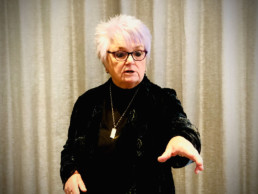A Ray of Hope
What a year! Schools and teachers everywhere have done such a great job in the face of so many repeated crises and every member of the profession must be exhausted and so much in need of the summer break.
Of course, we can’t really think of it as one year – it has been one long continuation of the pandemic – two and a half years of closures and adaptations, home schooling, catch up and – most infuriatingly – blame of anyone for poor decisions, except those to blame. Right from the first closure in March 2020, teachers and children have been expected to cope with repeated changes in procedures and practices. That first year with the March to June closures followed by more from December into February 2021 was a huge period of stress for everyone.
And everyone I know followed the lockdown rules to the letter – unless they worked in Downing Street of course!
We shall never forget that first lockdown when the rules were so strict and I, like so many, saw nobody except my bubble – my daughter, her husband and their two children. Schools were not yet au fait with home schooling and parents were very much on their own in a strange new world. Soon my grandchildren’s school were sending through maths and English activities for parental supervision and the mornings – including a P.E. session – were more or less sorted. By request, I took over the afternoons, with a mix of science, history, geography, art and ‘stuff’. No resources – where would we have been without the internet?
But we are privileged – we all three had the good fortune of higher education – all are in professions and with me being a teacher as well. What of the millions of deprived children suffering hunger and a restrictive environment – many without even a small garden to play in – and with parents who were themselves educationally deprived and so scarcely able to support their children in any meaningful educational ways? Coping with that first long lockdown of four months must have been a nightmare.
For ours, lockdown learning had some benefits. As a direct consequence, my grandson was the only eight year old in year four to be able to name the five oceans and seven continents at the start of a later unit about The Earth, and my 11-year-old granddaughter was the only one in year six to know the name of the capital city of Australia. What fun we had had playing ‘fastest first to find’ in Gammy’s (yes – that IS what they call me) two huge atlases! Geography on the hoof…
By the end of April 2021, however, the novelty had long worn off and signs of child stress were evident. Having no company their own age and being confined to house and garden took their toll and the last month of that first lockdown was a source of stress for all of us. But what if we had lived as part of a large family on the 13th floor of a multi-storey in a deprived location with no outside access?
This last academic year was mainly uninterrupted, schooling wise. Even the much loathed school bubbles had disappeared and despite several panics, not one lockdown was imposed on schools. Staff were valiant, covering and collaborating as covid spread, always seeking to keep life as normal and productive for children as they could, and the dreadful memories quickly began to fade. That’s the miracle of children’s brains! Time travels so very slowly – a year is a lifetime when you are in primary school. Can you remember how many years it seemed from one birthday to the next or from one festivity to the following one? That first, terrible year of the pandemic must have seemed to last forever for so many of our children. And yet unpleasant memories fade quickly if distracted by new and exciting experiences.
Today I accompanied my grandson (now 9) and my daughter on an inner-city ‘adventure’ to find ‘Football World’, where he was to attend a friend’s birthday party. My daughter and I were chatting as she drove, while my grandson was ‘busy’ on technology in the back seat. We were discussing the fact that everyone we knew had a cold, now at the start of July, all with a hacking cough, sneezing and a runny nose – but no-one felt poorly. That was when my daughter said that she had had a call that morning from her friend, who has ‘the cold’ – she had just tested positive for covid!
“Has covid gone away now?” my grandson piped up from the back seat – clearly that ‘one-ear-on-the-adult-chat’ policy was still in full force!
“No,” his mother told him, “but fewer people are getting ill now.”
When we got back to their house, I was tested. And I was positive! The radio news tells me it is probably the BA4 & BA5 variants that we have – highly infectious and fast moving but not causing illness for most. But this could morph again when the winter comes…
So, I am isolating – although I expect to be testing clear again in a day or two – and reflecting on the past two years and thinking about the future.
A time to reflect and review… a time to push harder for change and reform. The summary of the Times Education Commission, published mid-June, has given me such hope – I truly was beginning to despair that I would not see any improvement or significant change in my active lifetime within education, but at last the first buds of spring are showing.
As the commission says, ‘the way people shop, work, travel, bank and watch television has been utterly transformed over the past decade but schools have failed to keep pace. Instead of adapting to the 21st century, education remains stuck in the 20th and in some ways the 19th century.’
The 2nd lesson of the review describes the curriculum as ‘a narrow and rigid rubric that leaves no room for creativity.’ The progressive curricular models of so many other countries – some of which we, in our ignorance, would barely rate in terms of education – and of progressive schools in the UK, clearly far outstrip our national, historically knowledge-driven relic. Professor Dame Mary Beard is quoted as saying that the country has become ‘terribly snobbish’ about what education is for, adding: “It is still held back by class and privilege aspirations, which rank… [learning] …into what clever, posh white kids do, and what the other people do.”
The commission tells us that communication skills – ‘oracy’ in the jargon – should become mainstream in state schools, and that the independent sector has long understood the importance of the spoken as well as the written word.
The commission describes the huge ideological rift in the current curriculum as not being between left and right, but rather between knowledge and skills. ‘The national curriculum is described as being designed to introduce pupils to the best that has been thought and said rather than to help them to look to the future.’ The commission sees this as a false dichotomy, quoting Kevin Ellis as saying: “Education should be about both character and qualifications. It should open up pathways and support creative, inquisitive learners.”
How many of us have said similar over the past 40 or more years, to no avail? Throughout the 1990s and 2000s I, myself, designed many skill-driven curricular models for schools and organisations. These were all rooted in the English National Curriculum to allow for the pedants of Ofsted, but interpreted the required high knowledge content through investigation, communication, construction and analysis. Yet tradition dictated that – under pressure – many teachers cut back on the skills and reverted to teaching to the knowledge.
As the commission tells us, the next generation needs to be ‘…adaptable, inquisitive and empathetic.’ More than half the children who start school this next academic year will live to be 100. They will have to retrain many times over the course of their long careers…’
One hundred years ago from today fell between the world wars. The average life span was 54 years; Britain was recovering from the first world war and a global pandemic of 1918 to 1920 – the Spanish flu! The BBC began broadcasting in 1922 and by 1929 the first black and white television was being developed, as were fridges and crossword puzzles. The first commercial flights commenced and beach huts, bathing machines and Punch and Judy shows were all the rage at popular seaside resorts in England. The following decades saw the first telephones, computers and washing machines, yet 50 years later the 1970s were known as the decade of bell bottoms, discos and roaring inflation.
And from the commencement of my teaching career in 1965, I survived over 500 significant changes in education across Britain. My 57 years in education have been a constant of rethinking and re-skilling. Thus, I empathise so with the words of Tom Fletcher, principal of Hertford College in Oxford, when he says: “Those who adapt faster will win and those who adapt slowest will lose… This is about survival.”
It is my profound hope that this powerful report from the commission is the start of reform; that the pendulum of politics will cease to swing and great educationalists will take over the lead, bringing rational thought and the needs of the future to bear on the world of education and the curriculum.
Post script
And here we are… a few days after I completed this latest blog and once again the government is in shambles due to dishonesty and deceit, and we have another new Education Secretary! Much of this new blog may have read as controversial due to being inspired by, and often quoting from, the words of the Times Commission. Today is a sign of the times – we need change in how education policy and practice are decided – and we need it NOW!’
Talk:Write
A fun and flexible approach to improving children’s vocabulary, speech, and writing.


